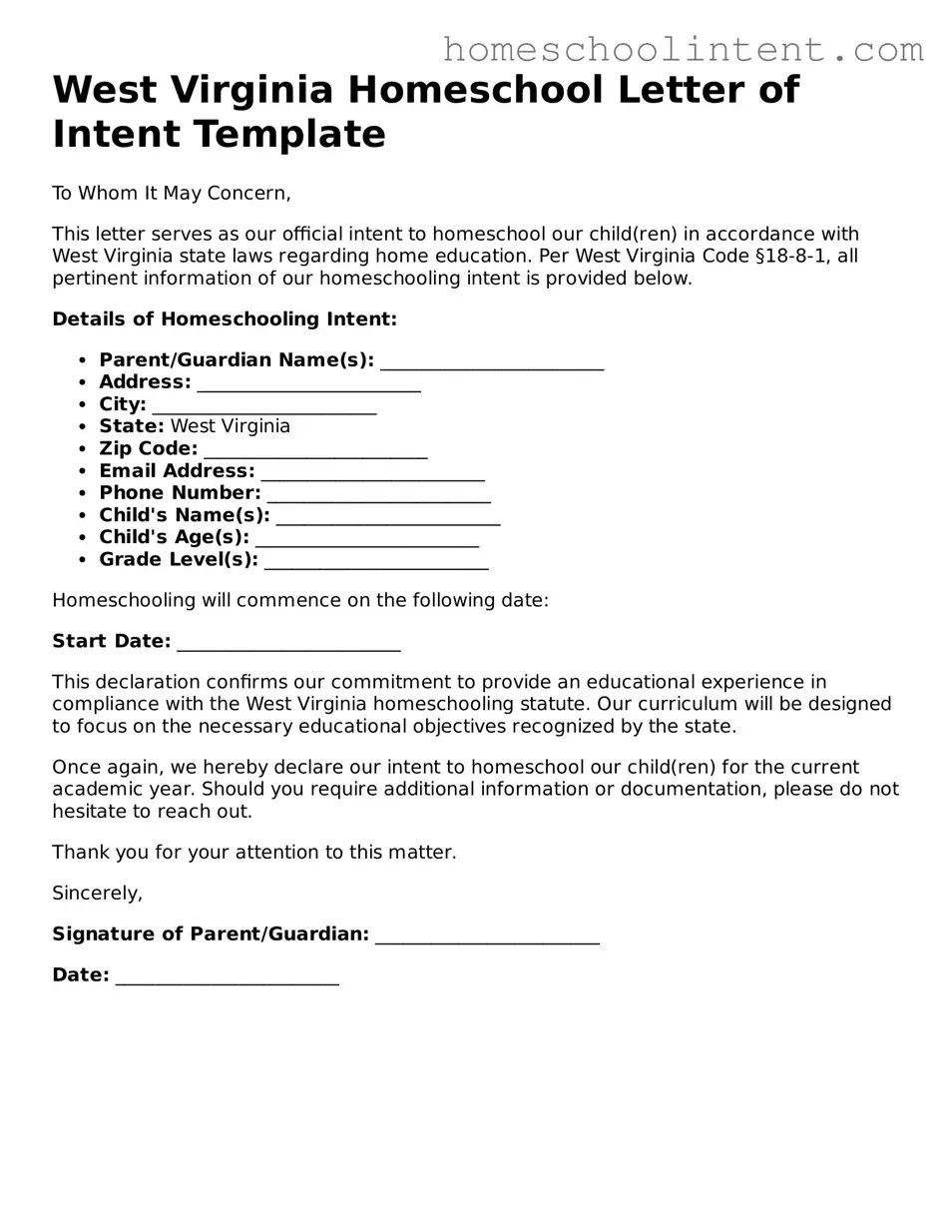Documents used along the form
When you decide to homeschool in West Virginia, you may need to submit additional forms and documents alongside the Homeschool Letter of Intent. These documents help ensure compliance with state regulations and provide necessary information about your homeschooling approach. Below is a list of commonly used forms and documents.
- Curriculum Plan: This document outlines the educational materials and methods you plan to use for your child's instruction. It can include textbooks, online resources, and other learning tools.
- Attendance Record: Keeping a log of your child's attendance is essential. This record helps track the days of instruction and ensures that you meet the state's educational requirements.
- Assessment Reports: These reports provide evidence of your child's academic progress. You may need to submit standardized test results or evaluations from a qualified evaluator.
- Transcripts: If your child has previously attended school, you may need to obtain and submit their academic transcripts. This document shows the courses taken and grades received.
- Portfolio of Work: A collection of your child's work can demonstrate their learning achievements. This portfolio may include samples of assignments, projects, and assessments.
- Notification of Withdrawal: If your child is transitioning from public or private school to homeschooling, you may need to submit a formal notification of withdrawal to the previous school.
- Educational Philosophy Statement: This optional document describes your educational beliefs and teaching philosophy. It can provide insight into your approach to homeschooling.
- Emergency Contact Information: Having a document that lists emergency contacts and medical information is useful. This ensures that caregivers have access to essential information in case of an emergency.
Gathering these documents can help streamline the homeschooling process and ensure compliance with state laws. Each document serves a specific purpose and contributes to a well-organized homeschooling experience.
